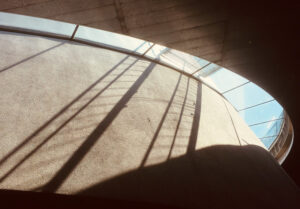- Alastair Dunning – Head, Research Services TU Delft Library
- Just de Leeuwe – Publishing Advisor
- Louise Otting – Collections Manager
- Nienke van Schaverbeke – Head, Scholarly Communications and Publishing
(Update December 2024: the additional BTW rate has thankfully now been cancelled. We have also decided to reduce our Open Access for Gold APCs more slowly, rather than scrapping it)
Opinion pieces, conferences, policy statements, blog posts, petitions and articles are singing the same song: the academic publishing industry needs serious reform. Maybe not a complete revolution, but a discarding of many ingrained instincts and processes.
In the Netherlands, this chorus is even louder. Cuts to the university sector, and, more specifically, a promised increase in the rate of the BTW (belasting over de toegevoegde waarde, the Dutch valued added tax). Publications will now be charged the full 21%, instead of 9%. This adds an estimated 5 to 10% to all library collection costs.
“Libraries therefore need to champion not only open access but cost-restraining forms of open access. This means both gold and immediate green open access options need to be an essential part of our strategy as we seek to constrain costs while achieving 100% immediate open access for articles published by TU Delft authors.”
Change requires multiple actors. Universities, and their libraries, are obviously key players here. They provide access to collections, negotiate with publishers, and connect with the researcher communities
Therefore, at TU Delft Library, we are undertaking the ‘Changing Publication Culture’ project, adopting numerous strategic and tactical decisions to promote change.
This includes
1) From 2025, we will reduce our existing open access funds. These funds were established to support TU Delft authors who had no means to pay for GoldAPC publications.
2) From 2025, we will introduce a Scholarly Communications innovation fund to support new processes and models within academic publishing
3) We are organising events to engage and build synergy with the research community. This includes events such as the Peer Review Showdon, Changing Publication Culture

4) We also engage each of the eight faculties individually. Firstly, with Publication Task Forces, where members of the library meet with a small number of researchers within each faculty to discuss publication and collection issues. And secondly with presentation and discussion groups to each of TU Delft’s 46 academic departments
5) Definition of principles to guide us through TU Delft’s negotiations with publishers. We are still working on these. But they will reflect our shared approach to publishing and licensing, drawn on the meetings mentioned above
6) Enacting a new collections strategy based on these principles. We have already started work here and a fuller list of prinicples will be shared soon.
Building national consensus is also critical. Particularly as bigger licencing deals in the Netherlands are done as part of the shared SURF consortium with strong input from the library directors that lead (UKB, Universiteitsbibliotheken & Nationale Bibliotheek) A white paper is currently being discussed that will help shape a national direction to change publication culture.
